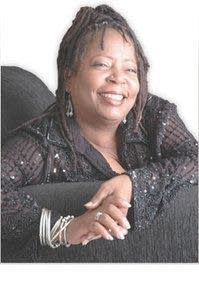Debbie Duncan, a singer who rings true

[image]
Midway through her first set at St. Paul's Artist Quarter on Friday, jazz singer Debbie Duncan asked a great question.
As she prepared to sing the Rodgers and Hammerstein show tune "Flower Drum Song," Duncan couldn't help but observe that the original version rings truer than a modern rendition she recently heard.
"Why they got to modernize everything?" she asked. "Why can't it just be like it was?"
Create a More Connected Minnesota
MPR News is your trusted resource for the news you need. With your support, MPR News brings accessible, courageous journalism and authentic conversation to everyone - free of paywalls and barriers. Your gift makes a difference.
For all the attention given of late to the shrinking jazz audience, and how younger audiences are disconnected from what the late pianist Billy Taylor called "America's classical music" -- and certainly there is an argument to be made for more modern forms -- that's an important point. Much of our great music needs to be retained, reinterpreted by great artists.
That tradition indeed lives through Duncan, an impeccable singer who embraces her repertoire of show tunes and standards, and spontaneously remakes them.
In an agile and moving performance, she used her voice like the instrument it is, delivering not just words but a flood of rich sound, at times taking the role of a horn player, and at others scatting much like one of her obvious influences, the great Ella Fitzgerald.
Backed Friday by the classy trio of Peter Schimke on piano, Eric Gravatt on drums and Anthony Cox on bass, the singer delivered a night of romantic and vibrant tunes, from the standards "Blue Skies" and "Come Rain or Come Shine" to another show tune, "Happy Talk."
She caressed the notes of each song while artfully playing her audience with humor, and paid artful attention to the lyrics, which enriched the tunes.
In an era in which jazz musicians can expand upon the theoretical and technological innovations of the inventive players that came before them to push their art in new directions, it is refreshing to see, and hear, a performer remind us of an earlier age.
Adeptly using tone, inflection, timing and volume, Duncan plays the role of a leader who is also part of a great band. In a sharp performance with no superfluous beats, Duncan and the trio created a link between modern life and a glorious musical past that still resonates in the present.
"I have no idea what I just did," she said between songs, "but it was fun."